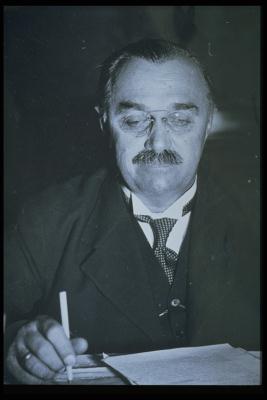<Back to Index>
- Mathematician Albert Nikolayevich Shiryaev, 1934
- Conductor Arthur Nikisch, 1855
- Chancellor of Austria Karl Buresch, 1878
PAGE SPONSOR

Karl Buresch (October 12, 1878, Groß-Enzersdorf, Lower Austria - September 16, 1936, Vienna) was a lawyer, Christian - Social politician and chancellor of Austria during the First Republic.
Buresch finished primary school in Groß-Enzersdorf and secondary school in Döbling. After receiving a degree in law from the University of Vienna in 1901 Buresch worked for a firm of solicitors in his home town.
In 1912 he became a member of the Groß-Enzersdorf council and in 1916 the town's mayor (a position he held until 1919). In 1919 he was a member of the constitutional national assembly (in German Mitglied der Konstituierenden Nationalversammlung). During the 1920s and early 1930s he was a delegate to the Austrian National Council (1920 - 1934), Landeshauptmann (governor) of the Lower Austria (1922 - 1931 and 1932 - 1933), and a chairman of the Christian - Social group.
Following the collapse of the biggest Austrian bank Creditanstalt in June 1931 and difficulties created by the instability of the national currency, Austria found itself in political turmoil. Buresch finally managed to form a cabinet after unsuccessful attempts by ex-Chancellors Otto Ender and Ignaz Seipel.
During his mandate, which lasted from June 20, 1931 to May 20, 1932, a number of austerity measures were introduced. His government was succeeded by a cabinet formed by Engelbert Dollfuss.
Until his death in 1936 Buresch was federal finance minister (1935), minister without portfolio (1935 - 1936) and governor of Österreichische Postsparkasse.